by Mark Hudson | Nov 5, 2016 | Storm Damage
At Hudson Chimney, we know firsthand the affect of recent storms on our neighbors in Jacksonville and surrounding areas. Our technicians live in the area, and know the damaging affects that high winds and water have on their homes.
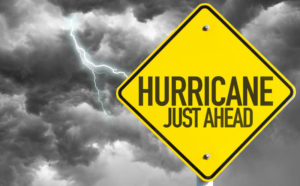 Hurricanes and tropical storms bring with them strong winds. These winds can can rip up flashing, damage chase pans and chimney caps, damage masonry, wear down chimney crowns and more. When these important parts of the chimney are damaged or missing, the water then has access to the chimney system. The water alone causing extensive damage itself. In our tropical climate, it’s important to repair damages like this as soon as possible. The best place to start is with a chimney inspection.
Hurricanes and tropical storms bring with them strong winds. These winds can can rip up flashing, damage chase pans and chimney caps, damage masonry, wear down chimney crowns and more. When these important parts of the chimney are damaged or missing, the water then has access to the chimney system. The water alone causing extensive damage itself. In our tropical climate, it’s important to repair damages like this as soon as possible. The best place to start is with a chimney inspection.
We Provide Inspections
According to the Chimney Safety Institute of America (CSIA), you should schedule a level two chimney inspection if your chimney has experienced a change or a natural occurrence that might have compromised the integrity or safety of the chimney system, including hurricanes. Our technicians provide expert and prompt service. In addition, our inspections include a video scan of the chimney system to provide a comprehensive report for your records.
We Will Sweep Your Chimney
The chimney sweep is vital to the safety and efficiency of your chimney, especially if your chimney cap was lost during the storm. During your chimney sweep, our technicians will remove all storm debris from the chimney. Also, removing the naturally occurring buildup of creosote on the chimney walls.
Common Storm Repairs for Your Chimney
Our experience of over 30 years of operation in the area has taught us what to look for first when dealing with storm damage.
- Masonry and Fireplace Repair
Our technicians will look for and repair cracks, receding mortar joints, crumbing or cracking chimney crowns, and any other type of masonry shifting or damage. This commonly occurs due to high winds during a storm, and is worsened by prolonged water exposure.
- Chimney Relining
We look for damage to the flue liner. Depending on the type of liner in your chimney, our technicians may choose to replace it with a more durable liner. However, our chimney sweeps may choose to apply HeatShield® cerfractory sealant. This product is applied to an existing flue liner, leaving a new, heat resistant surface to your chimney liner.
- Flashing Installation and Repair
We look for flashing damage, because any damage at all will affect it’s durability. A single dent can affect the way the water flows across it. This may allow it to penetrate the flashing and the roof. Consequently causing water damage not just within the chimney, but in the home itself.
Hudson Chimney offers a full menu of chimney services and we want to be your choice for storm repairs. To find out more about waterproofing and damage prevention contact a Hudson Chimney professional today.
by Mark Hudson | Oct 24, 2016 | Modern Chimney Standards
The use of fire for home heating is centuries old, as well as the need for a ventilation system. Fireplaces and chimneys have changed in major ways through the years. However, how the chimney works remains the same.
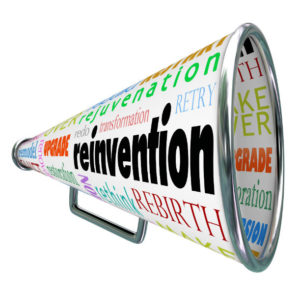 Your Classic Chimney
Your Classic Chimney
Many older chimneys are missing important parts that have been found to be vitally important in recent years. Many older masonry chimneys do not have a chimney liner, or they have an old clay tile liner. In other instances, older chimneys are too big for the size of the fireplace or insert. Chimney caps are also a part of the chimney that are often overlooked by the older generation of homeowners. They have been missing on classic chimneys for years.
There is a reason why these elements have been added to modern standards of chimney and fire safety. The fire industry is constantly changing, which is why chimney professionals renew their training regularly. It’s also why fire codes and municipal standards are always changing as well.
Modern Standards
The industry standard for chimney sweep credentials is the Chimney Safety Institute of America (CSIA). The CSIA Certified Chimney Sweep® (CCS) credential stands for excellence and training in the ever-changing field. There is a need for such a standard. In addition to have a similar need for manufacturing, installation, and operation standards for everyone’s safety.
The National Fire Protection Association (NFPA) is the leading information and knowledge resource on fire, electrical, and related hazards. The CSIA became the industry standard for professional chimney sweeps. The NFPA became the industry standard for safe ventilation, installation of fire-burning appliances, and the construction and installation of chimneys, fireplaces, and venting systems.
The NFPA 211 standards address:
- Design, installation, maintenance, and inspection.
- Chimneys, fireplaces, venting systems, and solid fuel-burning appliances.
- Residential, commercial, and industrial occupancy.
Comprehensive provisions address general requirements as well as specific types of units. The appliances are actually manufactured with these codes in mind. So, chimney sweeps are well-abreast of them when they install, maintain, replace, or repair the appliances and chimney systems. This is why you should never install your own fireplace or furnace. Only a certified chimney sweep can install the appliance and properly match it with the perfect venting products.
Hudson Chimney has changed with the industry standards, as we’ve been full-time chimney sweeps since 1979. Our technicians are experienced and trained to bring your classic chimney up to modern standards.
Ready to let someone bring your chimney system into the modern era? Also, keeping your safety and comfort in mind? Call Hudson Chimney today at 904-282-4159. For your convenience you can also request an appointment online.
by Mark Hudson | Oct 10, 2016 | Chimney Inspections
If you are familiar with real estate, mortgage brokers, or state and municipal codes, you may be familiar with home inspectors. The are NOT to be confused with a chimney inspector. Expecting a home inspector to properly assess the complex workings of the chimney system? That’s like expecting a sport’s car expert to inspect an RV. They are similar, yes. They have some of the same features, yes. However, there is a lot more to the RV than the car. Likewise, there is a lot more to a chimney than meets the eye.
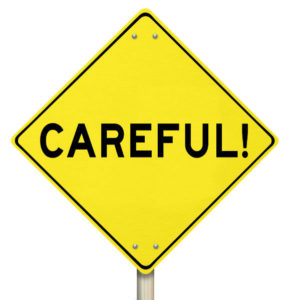 The CSIA Difference
The CSIA Difference
The Chimney Safety Institute of America (CSIA) has been the industry standard for training, education, and certification since the 1980’s. Members are required to undergo aggressive training and field hours. They also have to re-certify every three years by way of exam or continued education.
Only a CSIA Certified Chimney Sweeps® (CCS) has the experience and expertise to inspect the entire chimney system properly. The National Fire Protection Association (NFPA) along with CSIA recommends annual chimney inspections. There are three levels of inspections:
- Level One
This is the annual inspection. It’s scheduled when no changes are made to the chimney system. This inspection is a visual check of all easily accessible parts of the chimney system.
- Level Two
This inspection should be scheduled when the chimney system is changed in any way. For example, when fuel is changed, appliances are installed, or there has been parts repair or replacement. This will happen when a level one inspection requires further investigation. It involves accessing hidden portions of the chimney system.
- Level Three
This is the most thorough inspection. It’s scheduled when a level two inspection requires further investigation. During a level three inspection parts of the home can be removed. This allows access to all parts of the chimney system. These include areas surrounding the chimney system, like in attics, crawl spaces, and behind walls.
Why These Levels of Inspection are Important
The three levels of chimney inspections include any issue that might arise with the chimney. Even the level one inspection is more thorough than that of a home inspector. According to Total Home Inspection the home inspector will assess the visible parts of the chimney. These include the flashing, masonry, and chimney cap. However, a home inspector or general contractor does not have the trained eye that a certified chimney sweep does. By the time a chimney reaches the level of damage that an inspector checklist describes, (damaged brick, cracked joints, staining) it could be overwhelming. Regardless, there is more than likely extensive damage that would have been noticed first by a certified chimney sweep.
Legal Documentation
Scheduling an inspection of your chimney may be for real estate sales, property ownership transfer, or an insurance policy. No matter the reason, you want to be sure your documentation will be accepted. Hudson Chimney not only offers inspection services. We offer video documentation of the interior of the chimney, as well as a detailed report for your records. The CCS credential is what your insurance, loan, or real estate broker will look for. Choose a certified chimney sweep every time.
Call Hudson Chimney and ask about our inspection services today or request an appointment online!
by Mark Hudson | Sep 26, 2016 | Appointment Tips
As the evenings get cooler and days grow shorter, we’re inching closer to burning season. If you have a fireplace, stove, or other heating appliance you are probably in tune with the signs that tell you burning season is coming quickly. If fall is approaching and you haven’t had your chimney cleaned since last burning season, you should schedule a chimney sweep now. While scheduling your chimney maintenance you can keep this five things in mind to ease the process.

Find a Chimney Sweep You Can Trust
Before scheduling your chimney maintenance, you should find a chimney sweep that is CSIA certified. Check online reviews, and call if you have questions before scheduling an appointment. You will be spending your hard-earned money and putting your home in the hands of this chimney sweep, so you should be able to trust them.
Schedule in Advance
The Chimney Safety Institute of America (CSIA) and the National Fire Protection Association (NFPA) recommend regular chimney sweeps and annual chimney inspections. Schedule these appointments in advance, and avoid the hassle of scheduling during the fall rush or during the winter. It’s often frustrating to schedule chimney maintenance during the winter because you can’t use your chimney for 24 hours before the appointment. If you need repairs, replacements, or rebuilds your chimney will be out of commission for even longer. Avoid this headache by scheduling in advance.
Prepare for Your Chimney Sweep’s Visit
Prepare for the chimney maintenance by discontinuing use of the chimney for 24 hours prior to the cleaning. Before the visit you should also clear a space of about 6 feet in front of the fireplace or appliance, as well as remove all sentimental items and valuables from the mantel and around the fireplace.
Maximize Your Time With the Sweep
Some chimney sweep companies might not allow distractions while their CSIA Certified Chimney Sweep® (CCS) works, but this is a great time to learn about the chimney system. Hudson Chimney is happy to accommodate homeowners who’d like to watch our technicians work. Ask questions while our sweep is working—he’ll let you know if he’s too busy to interact with you. It is our goal as CSIA members to educate homeowners above all else. Chimney safety starts with you.
Follow Recommendations from the Sweep
Depending on what your technician is doing, whether a sweep or inspection, he should offer expert advice. You should listen to the professionals you hire to work on your chimney. There is nothing wrong with getting a second opinion, but when it comes to a professional opinion about a repair or replacement, you should plan these things sooner rather than later. When you wait to repair a damaged chimney you can cause more damage and raise the risk of fire.
It’s important to schedule and keep chimney maintenance appointments, and by keeping these tips in mind you can avoid missing something important that may save you time and money.
If you’re ready to schedule your chimney appointment call Hudson Chimney at 904-282-4159 or request an appointment online.
by Mark Hudson | Sep 10, 2016 | Prefab Chimney Maintenance
When you’re building or remodeling a home you don’t have to stick with a traditional fireplace. If you’re unable to install a traditional masonry fireplace with adequate foundation, there are other options available. Factory-built fireplaces offer a variety of designs as well as freedom of placement because they’re lighter and don’t require a foundation for support. By choosing a factory-built fireplace you can enjoy a beautiful fireplace for a fraction of the time and cost of a masonry chimney installation.
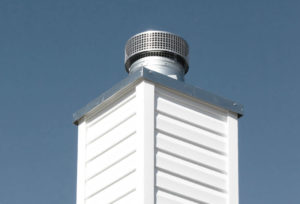
Your Prefab Fireplace
Your prefabricated or factory-built fireplace can match most home designs and can be installed in any location because of it’s lightweight design and refractory walls. Although you have the freedom to choose it’s location, you cannot use just any chimney for a factory-built fireplace. Each prefab fireplace is fitted with a chimney that has been tested with the fireplace and they’re engineered to work safely and efficiently as one unit.
Remember Professional Maintenance
According to the Chimney Safety Institute of America (CSIA) installation of the unit is critical for safe operation as well as efficiency and longevity. It’s also vitally important to schedule regular chimney sweeps as well as annual chimney inspections. It’s at these appointments that a certified chimney sweep will notice problems with your prefab fireplace and chimney. Catching any problems early will save you money and problems later.
What You Can Do
While keeping up with your routine maintenance with a professional chimney sweep, there are also things you can do to keep your fireplace and chimney in tip-top shape.
- Keep the damper fully open from the start of the fire until it is completely out.
- Avoid overloading the fireplace, which can burn too hot or cause logs to roll out.
- Only burn properly seasoned wood in your fireplace. Avoid burning paper products, trash, and any other household items.
- Never use liquid fuel to light a fire in your fireplace. If you have trouble lighting your fire, consider trying a top-down fire.
- Close the screen to prevent sparks from flying out of the fireplace. The glass doors are not to be closed until the fire is almost out.
- Do not change appliances or install a wood-burning stove or insert into a factory-built fireplace. The chimney is designed for your specific fireplace. You should have a professional inspect your chimney system if you make changes.
- Empty ashes from the firebox regularly to avoid buildup and foul odors. Excessive ash in the firebox can cause logs to roll out. Since prefab fireplaces aren’t designed to burn all the time, a buildup of ashes can cause the fireplace to smell of ashes when it isn’t lit.
- Follow manufacturer’s instructions, which should be given to you upon installation.
- Check the firebox for damage periodically. Cracks in the refractory walls need to be assessed by a professional.
No amount of maintenance can replace professional expertise. Hudson Chimney is trained and experienced in installing, servicing, and replacing factory-built fireplaces in the Jacksonville, Florida area. Call 904-282-4159 and speak to a Hudson Chimney technician today.
 Hurricanes and tropical storms bring with them strong winds. These winds can can rip up flashing, damage chase pans and chimney caps, damage masonry, wear down chimney crowns and more. When these important parts of the chimney are damaged or missing, the water then has access to the chimney system. The water alone causing extensive damage itself. In our tropical climate, it’s important to repair damages like this as soon as possible. The best place to start is with a chimney inspection.
Hurricanes and tropical storms bring with them strong winds. These winds can can rip up flashing, damage chase pans and chimney caps, damage masonry, wear down chimney crowns and more. When these important parts of the chimney are damaged or missing, the water then has access to the chimney system. The water alone causing extensive damage itself. In our tropical climate, it’s important to repair damages like this as soon as possible. The best place to start is with a chimney inspection.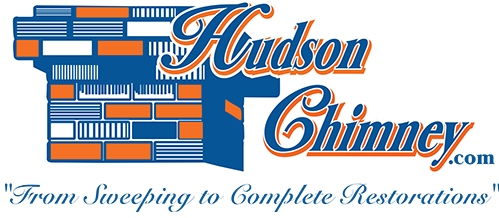

 The CSIA Difference
The CSIA Difference
